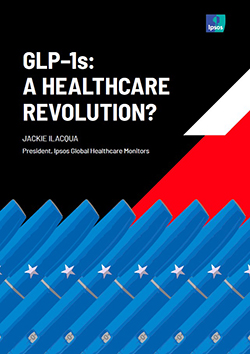GLP–1s: A Healthcare Revolution?
 The age of GLP-1s is upon us, with the potential to transform healthcare as we know it. What began as a treatment for type 2 diabetes has expanded to reinvent obesity management – and the promise of this drug class extends far beyond these two diseases for which it is currently approved.
The age of GLP-1s is upon us, with the potential to transform healthcare as we know it. What began as a treatment for type 2 diabetes has expanded to reinvent obesity management – and the promise of this drug class extends far beyond these two diseases for which it is currently approved.
In this paper, we highlight the impact of GLP-1s to date, and discuss ongoing research suggesting their game-changing potential in combating some of the world's most prevalent and devastating conditions – both within and outside the metabolic arena. We also consider the implications for future healthcare delivery, cost reduction, and the pharmaceutical industry.
Ultimately, we look into a future where millions of lives could potentially be transformed, healthcare burdens dramatically reduced, and new frontiers of treatment unlocked.
The future of medicine is here, and it is led by the GLP-1s.


